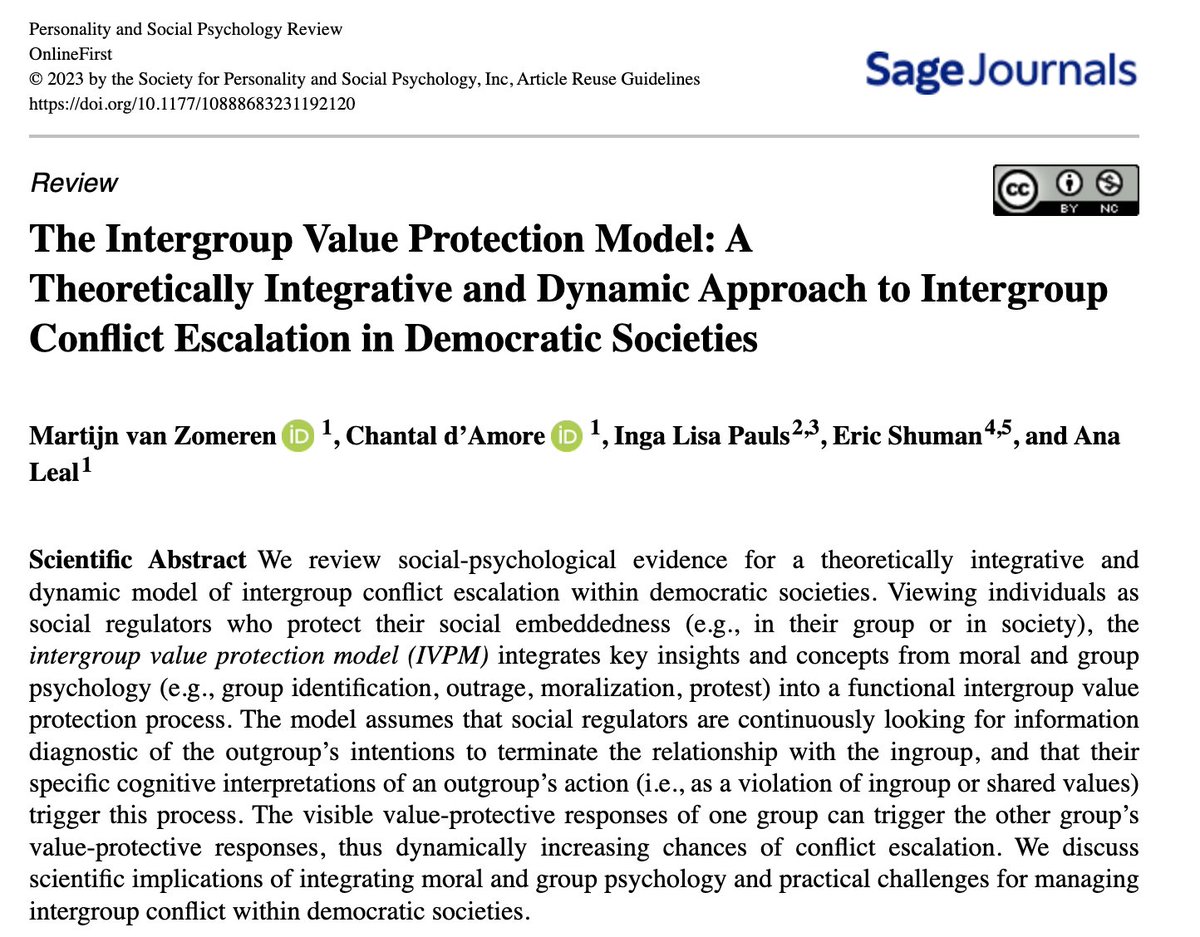
Chantal D’Amore
@chantal_damore
Postdoc researcher in Social, Political and Moral psychology @univGroningen| Morality, polarization, Groningen gas extraction (chantaldamore.bsky.social)
ID: 1185889218037538816
20-10-2019 12:03:29
63 Tweet
338 Followers
388 Following

This Friday (12/05) from 10:30-16:00 is the next Dutch Political Psychology Meeting. Everyone is welcome to join at the ASCoR | @[email protected] (Roeterseiland campus, C10.20). We have a great full program of speakers! See below 👇

10:45 Daan Scheepers: "Social change as challenge and threat: A social psychophysiological approach" 11:25 Chantal D’Amore : "Perceived polarization amplifies attitude moralization in response to partisan news: A four-wave longitudinal study around the 2020 US election campaign"


14:40 Flavio Azevedo :"Measuring Ideology: Current practices, its consequences, and recommendations" 15:20 Kevin Koonings: "An era of conspiracies and the great reset of democracy"

It is time for another Dutch Political Psychology Meeting. We have a full, on site, program. For details about speakers and talks, see the tweets from Maaike Homan. If you are in the area, feel free to join. We meet from 10.30 - 16.00 ASCoR | @[email protected] REC C10.20.

Wonderfull kickoff for #easp2023krk at the Navigating Social Change pre conference! Thank to our brilliant speakers Paszkál Kiss , Melissa Jauch , @GonnekeT , Chantal D’Amore , Marty Colombo , Zachary Petzel , @LisetteYip , Elena Bacchini , @tobisachs


Big thank you to Chantal D’Amore, Kelly Kirkland, and Jolanda for joining me for this #easp2023krk symposium on societal moralisation and division. Super interesting work and even better humans.


"The Intergroup Value Protection Model: A Theoretically Integrative and Dynamic Approach to Intergroup Conflict Escalation in Democratic Societies". Very happy to see our paper online in PSPR! With Martijn van Zomeren, Eric Shuman Ana Leal Inga Lisa journals.sagepub.com/doi/10.1177/10…



The Next International Moral Psychology (IMP) Seminar Series talks: Monday, November 6th at 12pm EST Flashtalk from Chantal D’Amore Main talk from Paul Conway Registration: us02web.zoom.us/webinar/regist… With Meltem Yucel (Melt-um You-Jell) and Jim AC Everett 🇬🇧🏳️🌈 Can't wait!!!






